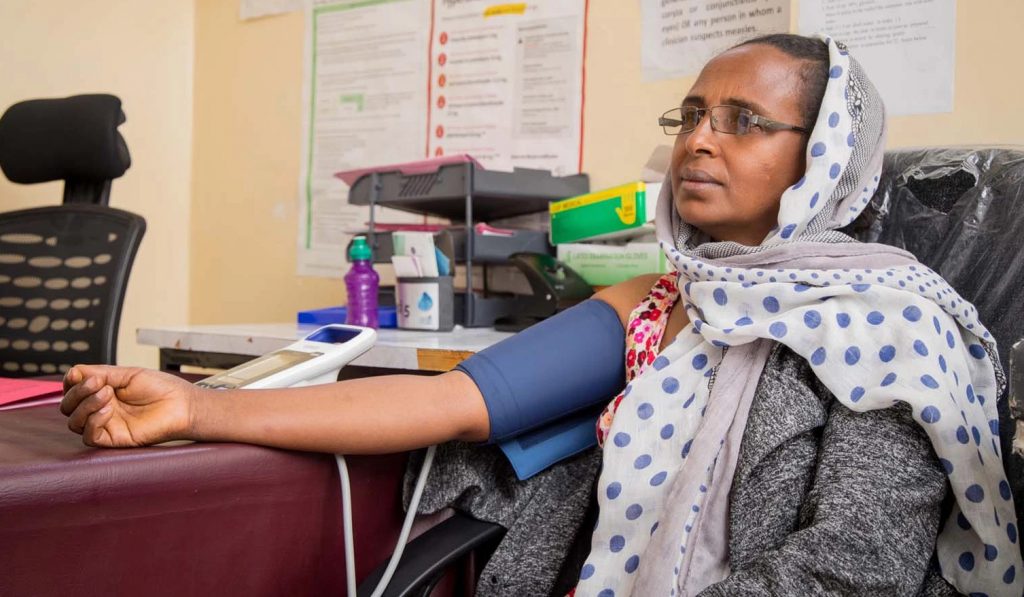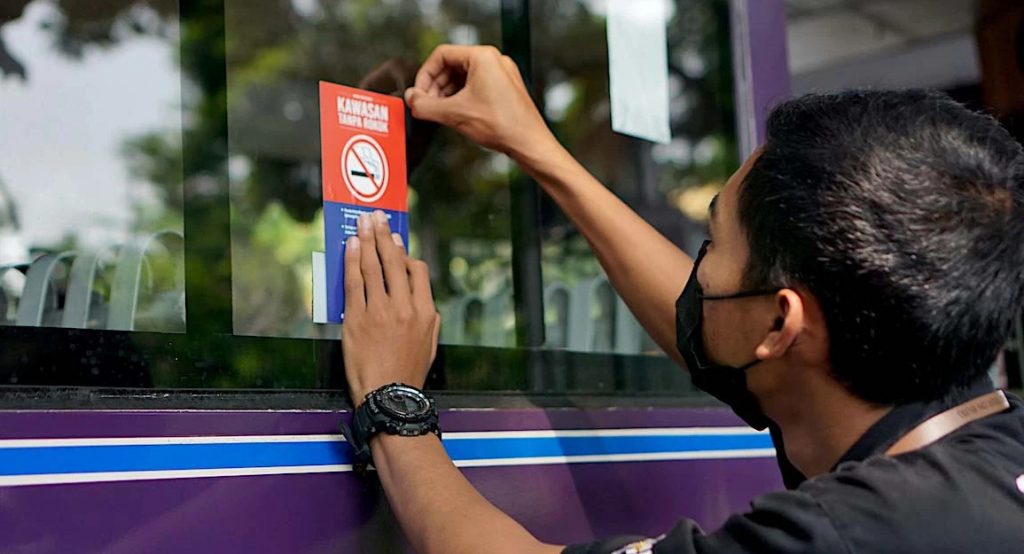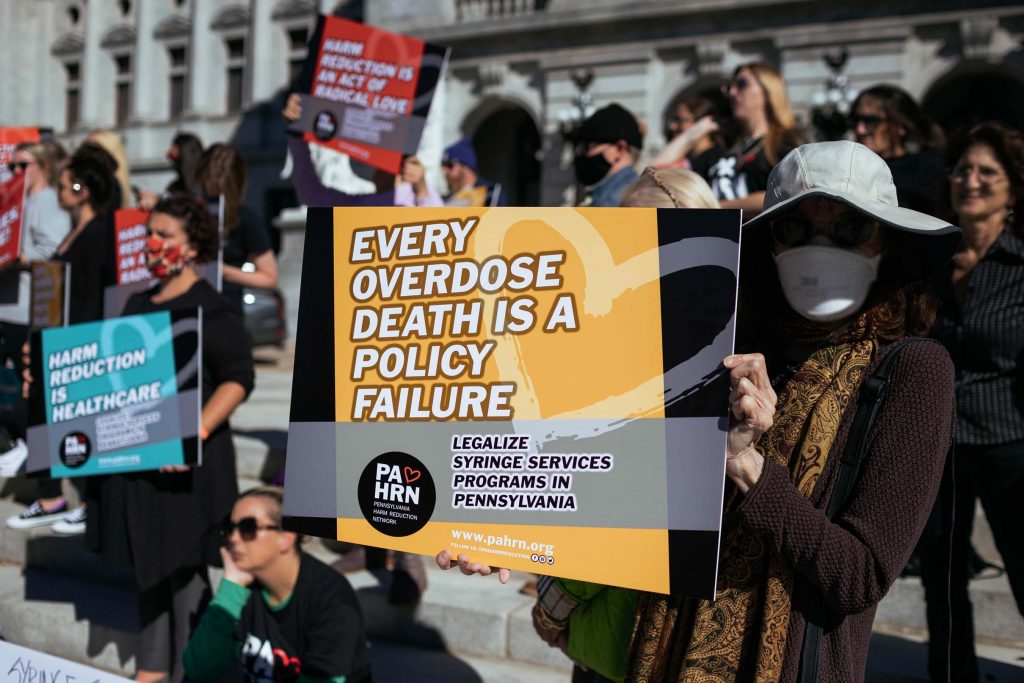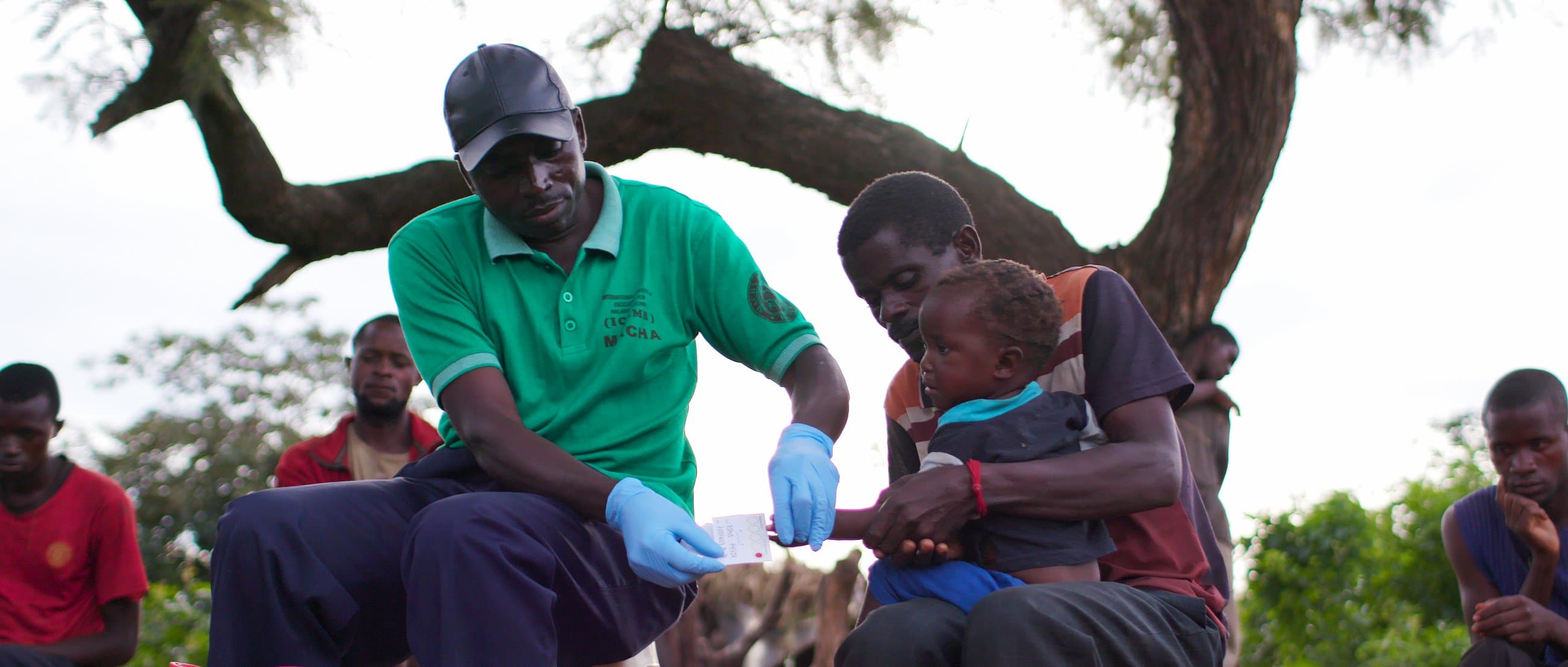Ensuring Safer, Longer, Healthier Lives
The Public Health program takes on noncommunicable diseases and injuries to reduce preventable deaths from tobacco use, unhealthy diets, road traffic crashes, and other leading causes. Bloomberg Philanthropies follows the data and builds strong partnerships with national and local governments and organizations, sharing and helping implement solutions proven to save lives. This approach also allowed the team to quickly pivot to tackle COVID-19 and support recovery efforts in cities and countries around the world.

Stories of Impact
Dr. Simón Barquera
Director, Nutrition and Health Research Center at the National Institute of Public Health (Mexico)
Reducing the Use of Tobacco and E-Cigarettes
Bloomberg Initiative to Reduce Tobacco Use
Since 2007, Bloomberg Philanthropies has made major investments to reduce tobacco use, which causes one in ten deaths globally every year.

The initiative works with national and local governments to enact a package of policies that are proven to reduce tobacco use and save lives, such as prohibiting smoking in indoor public places, enforcing bans on tobacco advertising, and raising taxes on tobacco. It also takes on the tobacco industry’s efforts to undermine science-based policy. The initiative’s work has covered more than 112 countries and focuses on the world’s largest smoking populations, including in China, India, Indonesia, and Bangladesh. It has contributed to significant progress: Today, roughly 5.3 billion people are protected by at least one comprehensive tobacco control measure, up from one billion people in 2007. Roughly 4.4 billion people in 98 countries are covered by at least two comprehensive tobacco control measures, up from less than 500,000 in 2007. Based on progress to date, the initiative is projected to save 35 million lives by 2030.
Global Cigarette Sales Continue to Decline
Billions of cigarette sticks sold, with percent change from previous year

Source: Euromonitor
Spotlight
Every single South American country now has a comprehensive smoke-free law, following a recent presidential decree in Paraguay that banned smoking in indoor public places. Bloomberg initiative partners worked with many of these countries to reach this incredible achievement.
Protect Kids: Fight Flavored E-Cigarettes
In 2019, Bloomberg Philanthropies teamed up with the Campaign for Tobacco-Free Kids, the U.S. Centers for Disease Control and Prevention, and the CDC Foundation to combat a boom in youth e-cigarette use in the United States, which put a new generation at risk of becoming addicted to nicotine. While teen smoking has fallen drastically over the last 20 years, nearly two million high school students use e-cigarettes, largely because of kid-friendly flavors and branding produced by the tobacco industry.
Spotlight
Successfully advocated for flavored e-cigarette bans in 22 cities and counties in 2021 – bringing the total number of local bans supported to 55 since 2019.
In 2021, the initiative successfully advocated for 22 U.S. cities and counties to ban flavored e-cigarettes, bringing the total number of state and local bans supported to 55 since work began. While youth e-cigarette use remains alarmingly high, these efforts have helped spur a decline from 27.5 percent of high schoolers using e-cigarettes in 2019 to 19.6 percent in 2020. Partners worked steadily throughout 2021 to draw attention to the importance of the FDA’s review of marketing applications for flavored e-cigarette products. The FDA rejected nearly one million flavored products and temporarily halted sales of 4.5 million more while it requested additional information.
Improving Road Safety Around the World
Initiative for Global Road Safety
Bloomberg Philanthropies works in low- and middle-income countries around the world to prevent road traffic crashes, which kill roughly 1.3 million people and injure up to 50 million every year. These efforts help protect everyone on the road, including pedestrians, bicyclists, motorcyclists, and vehicle occupants.
Since 2007, the initiative has expanded to reach 25 cities across 15 countries, focusing on five major strategies: strengthening road safety laws; reducing dangerous behavior, such as speeding, drinking and driving, and failing to wear safety equipment like helmets and seatbelts; improving road infrastructure to make streets safer; strengthening road traffic mortality, injury, and crash surveillance systems; and advocating for improved vehicle safety standards.
Bloomberg Philanthropies supported the redesign of the Barrio Inglés roundabout in Bogotá, Colombia, to reclaim space for pedestrians and add a protected bike lane. The city reduced road fatalities by 38 percent between 2014 and 2020. Credit: Global Designing Cities Initiative
In 2021, the initiative provided 35 grants across 13 countries to support local organizations advocating for stronger road safety laws. With that support, for example, Ecuador adopted a law reducing speeds and mandating helmet use, and several Chinese cities adopted helmet requirements for e-bike riders. The initiative also built local capacity by training nearly 20,000 city staff and other stakeholders in road safety strategies, like police enforcement, safe street design, and communications; impacted road users’ behavior by airing 12 media campaigns in six cities and four countries, reaching over 35 million people; and made streets safer by helping cities redesign 75 high-risk intersections.
Strengthening Health Data Collection and Policy-Making
Data for Health
Every year, half of all deaths in the world go unrecorded, and too many health policy decisions are based on inadequate or incomplete information. The Data for Health initiative partners with low- and middle-income countries to collect better birth, death, and additional health data to close crucial information gaps and improve public health policy-making.
Thanks to co-funding from the Australian government and the Bill & Melinda Gates Foundation, Bloomberg Philanthropies has provided nearly 50 countries with technical assistance to improve the scope and accuracy of their data collection. Countries like Bangladesh and Senegal have improved their ability to measure COVID-19 deaths by using rapid mortality surveillance to understand the increase in deaths above past averages. Others, like Colombia, the Philippines, and Rwanda, are now collecting data on deaths in rural areas for the first time ever. And countries like Sri Lanka, Vietnam, and Zambia have changed their death certificates to the best-practice international standard.

Promoting Healthy Diets to Prevent Obesity, Diabetes, and Other Diet-Related Diseases
Global Food Policy
Bloomberg Philanthropies works with governments, civil society groups, researchers, and emerging young leaders to promote policies that tackle unhealthy diets, which result in eight million deaths globally every year. Global obesity rates have risen dramatically in recent decades, and there are currently 2.2 billion people who are overweight or obese largely due to unhealthy food environments.
Podcast
Listen to Learn How PhD Candidates Are Committed to Creating Healthier Food Environments Through Public Policy
The initiative works in seven focus geographies – Barbados, Brazil, Colombia, Jamaica, Mexico, South Africa, and the United States – as well as in additional countries through evaluation efforts and rapid response grants for policy advocacy. In 2021, initiative support helped pass front-of-package warning labels on unhealthy foods in Argentina and Colombia, demonstrating important momentum since Chile became the first country to implement a warning label policy in 2016. With the initiative’s support, several additional Latin American countries now have similar policies. To support the case for healthy food policies, the program has also supported the publication of over 200 peer-reviewed journal articles related to healthy food policy and promising solutions to address it.

Cardiovascular Health Initiative
Through a partnership with Resolve to Save Lives, an initiative founded by Dr. Tom Frieden, former director of the U.S. Centers for Disease Control and Prevention, Bloomberg Philanthropies supports efforts to tackle cardiovascular diseases. These include heart attacks and strokes and are the world’s leading cause of death, killing 18 million people every year.
The initiative works in low- and middle-income countries, where 50 percent of these deaths occur in people younger than 70, and focuses on three key strategies: eliminating artificial trans fats, reducing sodium intake, and controlling high blood pressure. Achievements to date include helping to pass trans fat bans in 32 countries; supporting the development of best practices to reduce sodium consumption and working to establish them in Ethiopia, India, and Vietnam; and registering 3.3 million people in nine countries and regions to have their high blood pressure treated.

Mobilizing Cities to Reduce Noncommunicable Diseases and Injuries
Partnership for Healthy Cities
First launched by Mike Bloomberg in 2017 through his role as World Health Organization Global Ambassador for Noncommunicable Diseases and Injuries, the Partnership for Healthy Cities is a network of 70 cities focused on reducing noncommunicable diseases and injuries.
Each year, more than 45 million people die from injuries and noncommunicable diseases (NCDs) – chronic, noninfectious health conditions like cardiovascular disease, cancer, diabetes, and more. The Partnership has identified 14 proven strategies to tackle the challenge in urban communities, and each city has agreed to implement at least one, from passing laws to reduce tobacco use, to setting healthier nutrition standards, to reducing speeding and drinking and driving.
Videos
See How Mayors And Local Leaders Help Their Citizens Live Healthier And Safer Lives
Partnership for Healthy Cities Spotlight
Lima, Peru

Credit: Paola Flores/Vital Strategies
Adopted policies requiring healthy foods in schools and promoting healthier menu items in restaurants.
Bandung, Indonesia

Credit: Vital Strategies.
Adopted a local regulation designating additional smoke-free areas, outlining penalties for violations, and strengthening enforcement.
Lusaka, Zambia
Supported a national policy to lower speed limits and focused on improving safety in seven school zones, including infrastructure improvements and speed reduction signage.
Protecting Access to Reproductive Health Care
U.S. Reproductive Health
As the U.S. Supreme Court considers a challenge to its decision in Roe v. Wade, millions of women across the United States are at risk of losing access to safe, affordable reproductive health care. As he has for decades, Mike Bloomberg continues to strongly support critical organizations that are defending women’s reproductive rights and challenging laws that would deny them, both at the state and federal levels.
Combating the U.S. Overdose Epidemic
Bloomberg Overdose Prevention Initiative
To address record numbers of overdose deaths and declining life expectancy in the United States, Bloomberg Philanthropies launched an initiative to combat the overdose crisis in 2018 and expanded it in 2021. The initiative promotes lifesaving, evidence-based approaches across three key strategies: developing and implementing effective policies and interventions in focus states; creating and disseminating tools and guidelines that can guide all states; and pushing for federal reform through lobbying, education, and awareness.

In Michigan and Pennsylvania, the initiative’s first two focus states and among the hardest hit by the crisis, data from the U.S. Centers for Disease Control and Prevention showed that prior to the pandemic, both states successfully reduced overdose deaths. When COVID-19 infection rates reached their highest points, both states saw lower increases in overdose deaths than the national average. Bloomberg Philanthropies’ support has helped implement more than 20 projects in each state to increase access to medication treatment, expand harm-reduction services, and promote a public health approach to drug use over punitive responses, while ensuring that equity, data, and sustainability drive the work.
Through the recent expansion, the initiative will support five additional focus states: Kentucky, New Jersey, New Mexico, North Carolina, and Wisconsin. The program will continue spreading proven interventions, like increasing access to overdose-reversing naloxone and medications like buprenorphine that help treat opioid use disorder.

Stories of Impact
Dr. Jeffrey Hom
Medical Director, Philadelphia Department of Public Health
Preventing Deaths from Drowning Through Local Solutions
Drowning Prevention
More than 235,000 people die from drowning every year, over 90 percent in low- and middle-income countries. Half are younger than 30, with children under five at the highest risk. Bloomberg Philanthropies supports local solutions to save lives in countries with high drowning rates and has partnered with the World Health Organization to share effective global measures.
Bangladesh
Supported community daycare supervision for 50,000 children ages 1-4 – and home wellness visits when the pandemic closed educational institutions – and advocated for the government’s early childhood development plan to include community daycares, which reduce drowning risk by 88 percent.
Vietnam
Joined with the government to provide survival swimming classes to nearly 14,000 children ages 6-15 in 12 provinces, which the government is now using as a model to expand drowning prevention efforts around the country.
Uganda
Funded a study to understand drowning incidence, showing that adults ages 20-39 in lakeside districts had the highest drowning rates.
Training a New Generation of Public Health Leaders
Bloomberg American Health Initiative
To address alarming declines in U.S. life expectancy, Bloomberg Philanthropies established the Bloomberg American Health Initiative at the Johns Hopkins Bloomberg School of Public Health in 2016. The initiative supports full scholarships for Master of Public Health and Doctor of Public Health fellows, with the requirement that each prospective fellow apply together with a collaborating organization and continue working for that organization in their community for at least a year after graduation. To date, 211 students have graduated or are currently enrolled in the program.
The initiative focuses on five of the biggest public health challenges facing the country: addiction and overdose; adolescent health; environmental challenges; obesity and the food system; and violence. In November 2021, the program’s annual summit drew more than 800 public health experts, elected officials, journalists, and advocates from across the country. Among the speakers were five governors, U.S. Assistant Secretary for Health Admiral Rachel Levine, and Bloomberg School faculty and fellows.

Stories of Impact
Mónica Guerrero Vázquez
Executive Director, Centro SOL
A commitment to tackling five critical health threats facing the United States:

Bloomberg Philanthropies’ Public Health program
Top photo: Bloomberg Philanthropies supports efforts to improve global road safety through strategies like improving road infrastructure. In Recife, Brazil, new bike lanes, crosswalks, and other safety measures are helping to protect everyone on the road.
Credit: Samuel Caetano/City Hall of Recife













